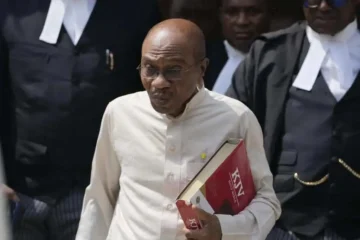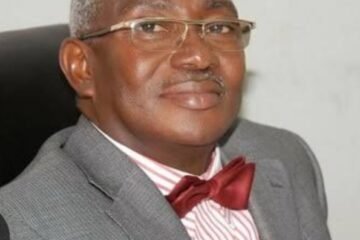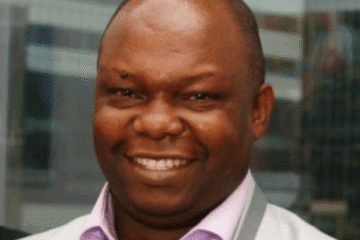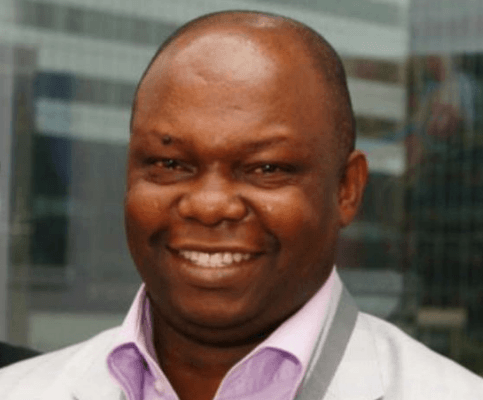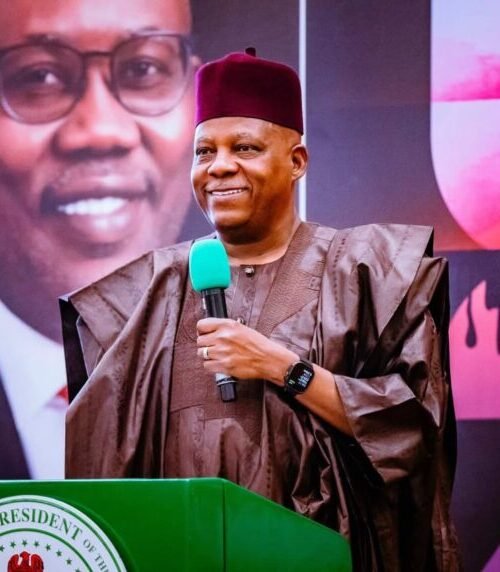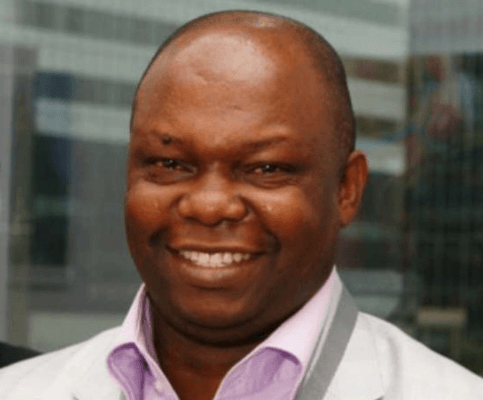By Anayo Agu
The beauty of democracy lies especially in its ability to give the citizens a choice in electing who governs them and a voice in the decisions that impact their lives. As a system of government, democratic power is vested in the people, who exercise it directly or through their elected representatives. That is why in an election year such as 2023, the Nigerian electorate, grossly neglected over the past three years suddenly became a target of opportunity, a beautiful Bride desperately wooed by political actors who hitherto could care less about their welfare or wellbeing. As a consequence of this seasonal malady, every community across the 36 states of Nigeria and the federal capital territory, Abuja, witnessed a flurry of town-hall meetings and promises of the ever-elusive dividends of democracy.
The Dividends of Democracy:
Beyond the catchphrase, “Stomach Infrastructure”, coined, I think, by the former governor of Ekiti State, His Excellency, Mr. Ayodele Fayose, the dividends of democracy refer to the tangible benefits that citizens expect from their government in a democratic society. For the sake of those who might not be familiar with the catchphrase, “Stomach Infrastructure” covers sundry financial inducements (legitimate and illegitimate) which politicians and government agents, sometimes, reluctantly give voters to influence their allegiance. But real dividends of democracy have nothing to do with such paltry patronages and survival stipends. Instead they are critical necessities of life such as protection of life and property; supply of clean water, provision of affordable healthcare and affordable education, ease of doing business, environmental sanitation, and patronage of local enterprises. They also include justice and fairness in the allocation of government resources, and provision of equal opportunity for citizens to make the most of their talents, gifts and skills. The fulfillment of these basic obligations serves as the benchmark for measuring the performance of elected officials and governments in a democracy.
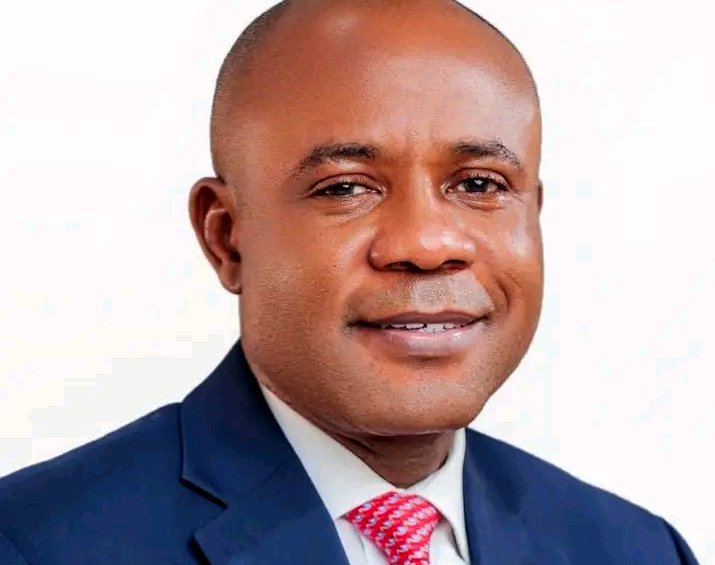
Governor-elect Peter Mbah
Our Tomorrow Is Here:
Enugu State is poised for a quantum leap. On Thursday, October 18, 2022, the Governor-elect of Enugu State, Dr. Peter Ndubuisi Mbah, shared his manifesto which most non-partisan analysts recognized and appreciated as a compendium of democratic dividends with a clear roadmap on how to deliver them even as the state under his leadership is expected to explore new development models and pathways. One of the priority projects the Governor-elect prominently highlighted was water supply to Enugu State. Another significant pledge he made was his determination to leverage technology and human capital which abound in the private sector to transform Enugu State from a low-value economy of 4 billion dollars to a high growth, economic super-power projected to stand at 30 billion dollars in eight years of seamless continuity. During his election campaigns, Dr. Mbah went further to emphasize his commitment to deliver potable water to the Coal City within six months of his swearing-in as the governor. These goals and many more like them which he conceived and designed to transform Enugu State are not only audacious, they are equally breathtaking to say the least. The concept being discussed is one of exponential gains, rather than incremental progress. It is therefore not surprising that some critics, lacking the know-how, dismiss his value propositions as technically implausible and utopian.
Enugu Can And Will Have Water In Six Months:
All things being equal, Enugu can and will surely have water in six months from May 29, 2023. The basic infrastructure is already there. What is currently missing is honesty of purpose and the will to do it. To achieve this legacy, however, the Governor-elect needs all the support and encouragement he can get from all residents in Enugu to officially ban the business of sycophancy and praise singing in the state; to root out the criminal networks of saboteurs inside and outside government particularly at the Ministry of Water Resources; to redeploy incompetent civil servants who cause obstructions in strategic places, and those who mount toll gates at every revenue point while at the same time blackmailing government initiatives and efforts.
The fact is that water can be made a profitable business, a critical revenue source, and a low-cost commodity accessible to every household in Enugu metropolis and other urban centers in the three senatorial zones.
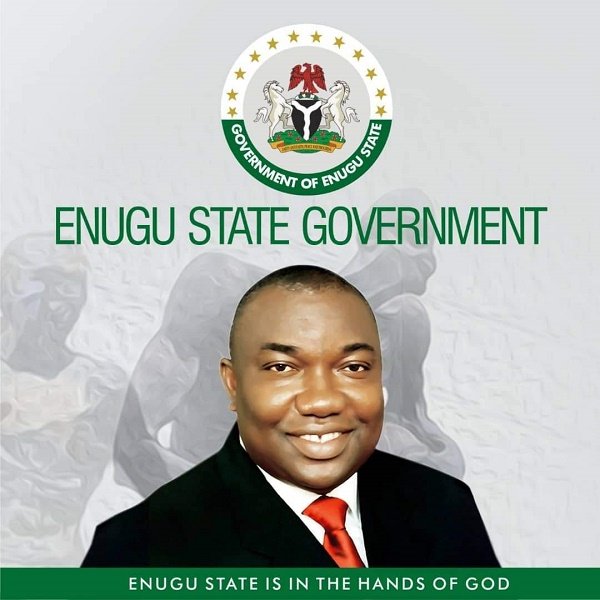
Outgoing Governor Ifeanyi Ugwuanyi
Targeting and Plucking Low-Hanging Fruits:
The first 100 days in office usually offers a crucial window of opportunity for an incoming governor to set the tone of his leadership and to demonstrate the kind of administration he intends to run. While we have every reason to expect a breakthrough performance over the next four years, I must advise us to proceed with some reasonable quantities of cautious optimism and patience considering the state of our state and the nation. Like the building of a sky scrapper, transformational change demands higher-order thinking, a deep foundation, commitment to uncommon services and sacrifices, and a shift in mindset by the intended beneficiaries. It also requires the assemblage of a tested and trusted team. In the case of our aspiration to build a 21st century state, the incoming government may well be encouraged to begin by targeting and harvesting some low-hanging fruits that could make maximum impact within a reasonable timeline with minimum expenditure of scarce resources and executive powers such as:
1. Radically transform public utilities and social services such as waste collection and environmental management, market facilities, roads and transport infrastructure including traffic lights in order to quickly return the Coal City to its glorious days.
2. Leverage cutting-edge technologies to decisively tackle endemic corruption in the civil service and in all government agencies. Enforce transparency and accountability especially in revenue generation, collection, accounting and records through cashless policies and rewards. Simplify the payment of taxes, rates and levies, and offer incentives to businesses and corporate organizations. Note: Money gives ideas wings. Enugu state’s internally generated revenue (IGR) and its gross domestic product (GDP) can be radically improved to join the league of ten leading states.
3. Transform the state property registration and land administration and disband the cabals discrediting and frustrating the implementation of government reforms.
4. Mainstream and prioritize commerce and industry, and radically improve ease of doing business to unleash the potential of the private sector and entrepreneurship in the state. Optimize the free trade zones, and as soon as possible, reconsider the abandoned Emene Industrial Park sited at Nchatancha. Note: Recent World Bank report rates Enugu State as one of the five worst places on ease of doing business.
5. Invest in Human Capital Development and give technical education, entrepreneurship and soft skills special attention. We can start by borrowing a leaf from Lagos State and Abuja that have functional MODEL Skills Training Centers. Note: Enugu State is one of the few states that source less than 10% of its technical skills from within the state.
6. Re-orientate the civil service including the local government administration and vigorously enforce a new work ethic and code of conduct. Note: Enugu State operates a three-day, work week. A compulsory sit-at-home on Monday and an unauthorized public holiday for burial ceremonies on Friday. A huge economic loss.
7. Mainstream and prioritize commercial agriculture. Provide incentives to small-holder farmers and promote some select crops, animal husbandry, food processing and packaging. This way, we can multiply their effectiveness and yields.
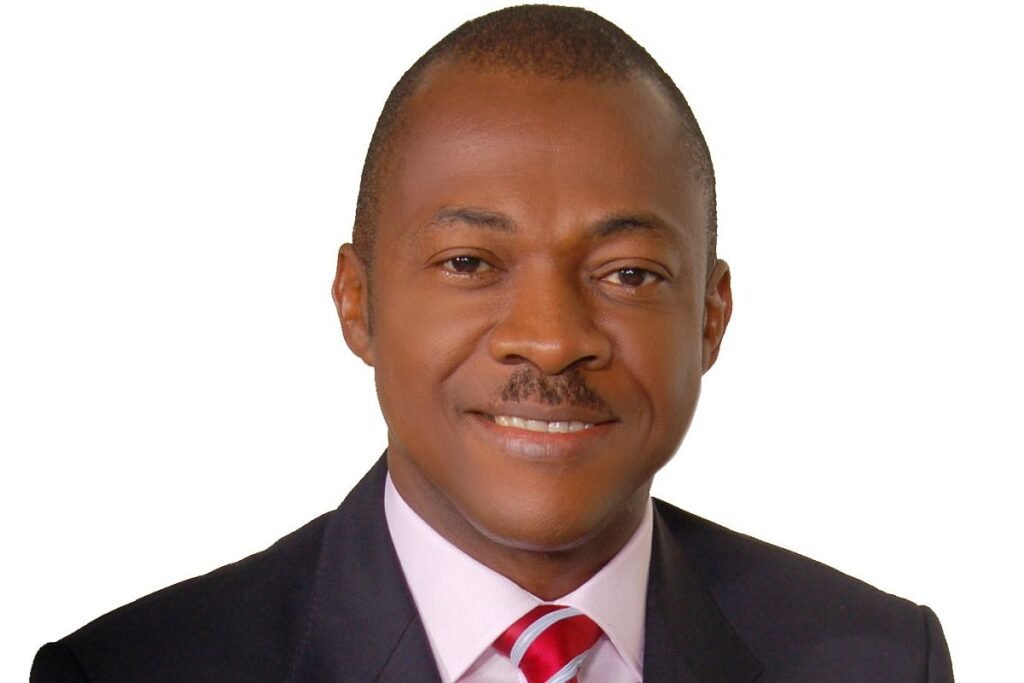
Former Governor Sullivan Chime
In his acceptance speech, Dr. Ndubuisi Mbah repeatedly re-echoed his commitment to make the three senatorial zones of Enugu State, not a section of it, his primary constituency and object of focus. Anyone who had paid close attention to the dynamics of the 2023 elections will understand why Dr. Mbah doesn’t need anyone to remind him that it is in his best interest to pursue justice, equity and fairness in the governance of Enugu State. After all, he is one of the few governor-elects whose electoral triumphs came not because of the performance and goodwill of their political parties, the power of incumbency of their present governments, or the magic wand of any godfather, but rather in spite of them. Dr. Mbah campaigned on his own terms and in his own right, and he won the election on account of the confidence the electorate had in his antecedents, detailed manifesto, grassroots campaigns, plus his contagious passion to transform Enugu State by doing things radically different. He therefore owes the people, not any political deity, total allegiance bearing in mind that his social contracts are renewable in another four short years.
The Essence of Good Governance:
Good governance is an ancient concept in a modern package and characterization. In the 1990s, the World Bank adopted the concept of good governance as a key conditionality for lending money to developing countries where corruption was endemic and had literary become a leadership lifestyle. In its 1992 report titled “Governance and Development,” the bank highlighted the objectives of good governance to include minimizing systemic corruption, promoting inclusiveness in decision-making processes, promoting transparency and accountability, and ensuring that the real needs of the ordinary people particularly disenfranchised communities are taken into consideration in resource management. Good governance also covers promoting collaboration among the three tiers of government, and of course, between the public and the private sectors. The good news is that these hallmarks of democracy are very much captured in the work plan and manifesto of the governor-elect.
In summary: The twin expectations of leadership in democracy are the promise of good governance and the delivery of dividends of democracy. The 2023 elections in Enugu State and across Nigeria witnessed an unprecedented magnitude of anger, resentments and acrimonies. And the dust has not settled. These facts, among other factors, suggest that our governments and those elected to serve the people had failed to deliver both the promise of good governance and the dividends of democracy. While we evaluate the outcomes of the elections and attempt to connect the dots to decipher what really went wrong particularly in Enugu State, let me use this medium to plead with all our stakeholders to put partisan politics aside and gird their loins for the great task ahead.
Over the next four years, we have a rare chance with the Governor-elect, Dr. Peter Ndubuisi Mbah to make the most of our resources and opportunities to build the Enugu State of our dream, to ensure good governance, and to equitably deliver the dividends of democracy to the citizens and residents of our State.




